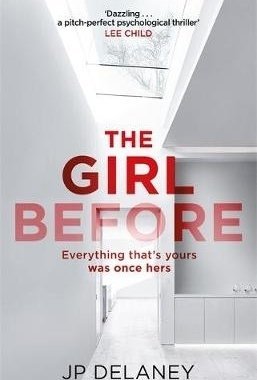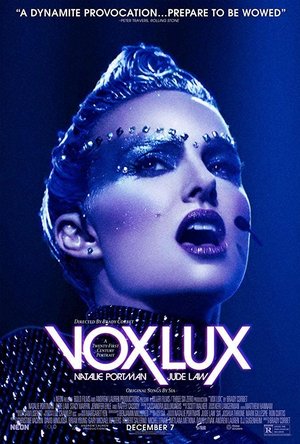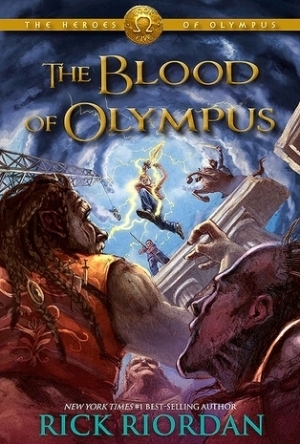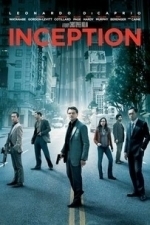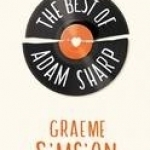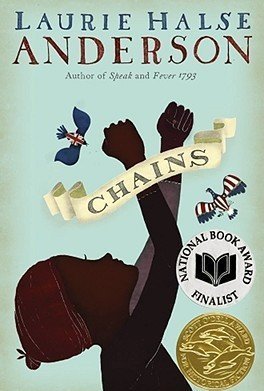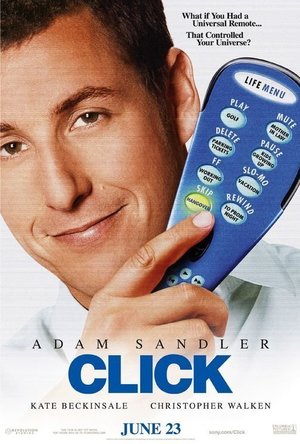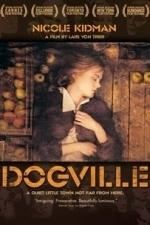Search

Sweden Social Dating, Chat & Meet Swedish Singles
Lifestyle and Social Networking
App
Single years can be some of the most productive and liberating times of your life. But there comes a...

JAUMO Flirt Chat
Social Networking and Lifestyle
App
Flirt. Chat. Date. Dating should be simple, fun, and fulfilling. Not stale, complicated, or awkward....
Zuky the BookBum (15 KP) rated The Girl Before in Books
Mar 15, 2018
Read my review here: https://bookbumzuky.wordpress.com/2017/02/04/review-the-girl-before-by-j-p-delaney/
<b><i>Please make a list of every possession you consider essential to your life.</b></i>
One Folgate Street is a minimalist house built by the mysterious, controlling and handsome Edward Monkford. To be granted lease, you must fill in a laborious questionnaire and attend a face-to-face meeting with Edward himself, and even then, you’re unlikely to be approved. There are a large number of rules you have to abide by when you live in the house, such as, no books (?!?!?!), no rugs, no curtains, and no leaving things out, such as clothes, toiletries etc, to name a few. You must also open your home for tours every so often and complete various questionnaires/assessments throughout your stay.
So, I know what you’re thinking, you’re thinking “who the hell would agree to that?” but as it happens, two women choose to live at One Folgate Street. Thanks to its low rent and dishy architect, both Jane and Emma are happy putting up with all the rules. Jane is the girl from now, and Emma is the girl before. Both women are troubled and both begin a relationship with architect Edward.
What follows is a novel full of mystery and sex. If you’re also not into the whole “daddy” thing then this won’t be for you.
Starting off this book, I was very worried I was going to hate it, because I’d seen a lot of people say the focus on kinky sex as a bit left field and overpowering to the plot. But, I managed to get over that when it started to appear in the story. In my opinion, it wasn’t as bad as many people had made it out to be and in any case, you can always skip over it. I thought it was going to go full 50 Shades at some moments, but it managed to avoid any of the scenes becoming too tactless.
The mystery of “the girl before” is certainly intriguing and kept me hooked (for the first half, at least). I liked the way this was set out as Emma (before) and Jane (now) and how the chapters often mirrored each other so we could see the similarities in each of the tenants lives and relationships with Edward.
What I didn’t like about this book was the characters, which I’m kind of assuming was the goal by Delaney? If not, then he/she (does anyone know and can inform me on their gender?) is pretty terrible at creating characters. Although Edward is set up to be our “villain”, I found Emma to be the most dislikable character, even after all was said and done. She was manipulative, unnecessarily forward, obnoxious and total putty in Edward’s hands. Women who can’t act on their own accord because of a man infuriate me, which is probably why I didn’t get on with this novel that well, as it’s kind of what the whole plot is about. I like my women strong and independent!
The ending of this novel, no word of a lie, infuriated me. What a total cop out. People are comparing this to <i>Gone Girl</i>, LOL. The conclusion to this novel is the most overused and uninspired “twist” you can ever imagine. What a way to ruin a perfectly OK novel.
Thanks to Netgalley and Quercus Books for giving me the opportunity to read this in exchange for an honest review.
<b><i>Please make a list of every possession you consider essential to your life.</b></i>
One Folgate Street is a minimalist house built by the mysterious, controlling and handsome Edward Monkford. To be granted lease, you must fill in a laborious questionnaire and attend a face-to-face meeting with Edward himself, and even then, you’re unlikely to be approved. There are a large number of rules you have to abide by when you live in the house, such as, no books (?!?!?!), no rugs, no curtains, and no leaving things out, such as clothes, toiletries etc, to name a few. You must also open your home for tours every so often and complete various questionnaires/assessments throughout your stay.
So, I know what you’re thinking, you’re thinking “who the hell would agree to that?” but as it happens, two women choose to live at One Folgate Street. Thanks to its low rent and dishy architect, both Jane and Emma are happy putting up with all the rules. Jane is the girl from now, and Emma is the girl before. Both women are troubled and both begin a relationship with architect Edward.
What follows is a novel full of mystery and sex. If you’re also not into the whole “daddy” thing then this won’t be for you.
Starting off this book, I was very worried I was going to hate it, because I’d seen a lot of people say the focus on kinky sex as a bit left field and overpowering to the plot. But, I managed to get over that when it started to appear in the story. In my opinion, it wasn’t as bad as many people had made it out to be and in any case, you can always skip over it. I thought it was going to go full 50 Shades at some moments, but it managed to avoid any of the scenes becoming too tactless.
The mystery of “the girl before” is certainly intriguing and kept me hooked (for the first half, at least). I liked the way this was set out as Emma (before) and Jane (now) and how the chapters often mirrored each other so we could see the similarities in each of the tenants lives and relationships with Edward.
What I didn’t like about this book was the characters, which I’m kind of assuming was the goal by Delaney? If not, then he/she (does anyone know and can inform me on their gender?) is pretty terrible at creating characters. Although Edward is set up to be our “villain”, I found Emma to be the most dislikable character, even after all was said and done. She was manipulative, unnecessarily forward, obnoxious and total putty in Edward’s hands. Women who can’t act on their own accord because of a man infuriate me, which is probably why I didn’t get on with this novel that well, as it’s kind of what the whole plot is about. I like my women strong and independent!
The ending of this novel, no word of a lie, infuriated me. What a total cop out. People are comparing this to <i>Gone Girl</i>, LOL. The conclusion to this novel is the most overused and uninspired “twist” you can ever imagine. What a way to ruin a perfectly OK novel.
Thanks to Netgalley and Quercus Books for giving me the opportunity to read this in exchange for an honest review.
Andy K (10823 KP) rated Vox Lux (2018) in Movies
Sep 18, 2019
Black Swan 2: The Return of Durant
In 1999, a middle school teenager Celeste has survived a horrific school shooting which has left multiple students and teacher dead. Through tragedy, the wounded girl triumphs through the singing of a tribute song which goes viral and becomes an anthem for heartbreak throughout the world.
She achieves instant success with her song, so much so, she gets a recording contract and her and her sister are whisked away to Sweden to record it officially and make a music video. Her manager chaperones her time there, but does not have much success. The girls have a good time partying and choosing every excess including the consequences. The video is a success and she becomes a star.
Eighteen years later, the aging pop star is trying to make a comeback and show she can still keep up. Her relationships with her sister, teenage daughter and sister as she has lived the ego-driven life of a celebrity now for too long. One the eve of a concert performance, another massive multi-person shooting happens at a beachfront, the perpetrators donning masks used in one of her videos making her the target of paparazzi and media scrutiny at a pivotal time in her life.
She tries to salvage her relationship with her daughter who is going through her own teenage angst with mixed success. It seems she is her own worst enemy questioning her choices and continuing leading the lifestyle of a demanding celebrity.
The movie seems like a tale of two halves with the teenage Celeste and the "grown up" version even having screen captures saying so. For me the first half was way more interesting than the second. The teenage Celeste was more believable, maybe because you didn't know her, but the screenplay was more interesting for her as well.
One can only imagine the emotions of having to live through such a tragedy and having to rebuild your life afterwards. Then adding on top of it, her instantaneous global stardom could not have done well to heal her physical, but emotional scars as well.
I felt Natalie Portman seemed out of place and her acting felt very wooden and dry to me unlike most of her portfolio. She even was an executive producer on the film along with her costar Jude Law, so she may have been focused on that instead of her acting performance. She doesn't appear in the film until close to an hour in and filmed her scenes over 10 days. It is unfortunate, but I really didn't believe her and took me out of several scenes as a result.
It is hard to empathize with the celebrity lifestyle of excess and demands having never lived it myself. It has certainly been portrayed onscreen much better than it is here and it really felt like the two halves of the film were disconnected and not resolved.
I certainly don't mind, or even encourage, the vague open-ended type of film generally speaking if it is left you to think about the plight of the characters their decisions, and ultimate destinations; however, this film accomplishes this only through bad writing.
The concert footage was well done and Portman certainly delivered on transforming into a Madonna/Britney Spears type icon. I was just hoping for more of a payoff and felt disappointed in the end.
She achieves instant success with her song, so much so, she gets a recording contract and her and her sister are whisked away to Sweden to record it officially and make a music video. Her manager chaperones her time there, but does not have much success. The girls have a good time partying and choosing every excess including the consequences. The video is a success and she becomes a star.
Eighteen years later, the aging pop star is trying to make a comeback and show she can still keep up. Her relationships with her sister, teenage daughter and sister as she has lived the ego-driven life of a celebrity now for too long. One the eve of a concert performance, another massive multi-person shooting happens at a beachfront, the perpetrators donning masks used in one of her videos making her the target of paparazzi and media scrutiny at a pivotal time in her life.
She tries to salvage her relationship with her daughter who is going through her own teenage angst with mixed success. It seems she is her own worst enemy questioning her choices and continuing leading the lifestyle of a demanding celebrity.
The movie seems like a tale of two halves with the teenage Celeste and the "grown up" version even having screen captures saying so. For me the first half was way more interesting than the second. The teenage Celeste was more believable, maybe because you didn't know her, but the screenplay was more interesting for her as well.
One can only imagine the emotions of having to live through such a tragedy and having to rebuild your life afterwards. Then adding on top of it, her instantaneous global stardom could not have done well to heal her physical, but emotional scars as well.
I felt Natalie Portman seemed out of place and her acting felt very wooden and dry to me unlike most of her portfolio. She even was an executive producer on the film along with her costar Jude Law, so she may have been focused on that instead of her acting performance. She doesn't appear in the film until close to an hour in and filmed her scenes over 10 days. It is unfortunate, but I really didn't believe her and took me out of several scenes as a result.
It is hard to empathize with the celebrity lifestyle of excess and demands having never lived it myself. It has certainly been portrayed onscreen much better than it is here and it really felt like the two halves of the film were disconnected and not resolved.
I certainly don't mind, or even encourage, the vague open-ended type of film generally speaking if it is left you to think about the plight of the characters their decisions, and ultimate destinations; however, this film accomplishes this only through bad writing.
The concert footage was well done and Portman certainly delivered on transforming into a Madonna/Britney Spears type icon. I was just hoping for more of a payoff and felt disappointed in the end.
EmersonRose (320 KP) rated The Blood of Olympus (The Heroes of Olympus #5) in Books
Nov 20, 2019
Alert! Before I begin this review, I need to let it be known that in the case of this particular book I may be a little biased, well maybe really biased! This is the tenth book I have read by this author and the last in the second series I have read. It is safe to say I love these books or else I would not have read this many.
Alright, now that that is out of the way, let me begin. This book is called Blood of Olympus, it is the fifth and final book in the Heroes of Olympus series (if you should ever desire to read these book, I would recommend starting with the Percy Jackson, and the Olympians series as this series is a sequel series. The author of this book is a writer by the name of Rick Riordan. This book is a young adult fantasy novel. It is the final chapter of the adventure of a group of seven young adults who happen to be demigods, modern day children of the ancient gods of Greece and Rome. This adventure, like many great adventures, is a race to save the world.
For me, the initial draw of the book was that it is a fantasy novel, which is one of my favorite genres, and its focus is on Greek Mythology, something of an obsession of mine. The mythology in these books may not always satisfy all mythology nerds because they do take liberties in how the myths are presented in order to showcase how they might have changed to fit in the modern day world. The way Riordan chooses to represent mythology is often fairly close to original stories, showing that he spends the time researching the myths, and they are clever, funny, and entertaining.
As I read the books, I found myself drawn to the relationships between the characters, not surprising as characters are a key draw for me in literature. By this point in the series, the relationships became especially interesting because you have known some of the characters for ten books now while others are just in their second or third book appearances. The central characters have grown into a substantial group that each have their own unique backgrounds, personalities, and even mythologies that create intriguing tension and bonds. Their bonds grow stronger as they work through new struggles and adventures with the added drama of them being a group of teenagers, which obviously means that there is a fair bit of romance involved as well.
For me personally to get into a story the most important aspect is to be very invested in61w3pqVMCZL._US230_ the characters. This does not mean I have to like them, but I do need to be completely invested in what happens to them. If the storyteller can do this, then I will most likely binge the entire thing whether book, movie, tv show, comic…. regardless whether or not the story is good or my normal cup of tea. This was definitely an initial draw in me reading this second series because I was already very invested in both Percy and Annabeth’s characters, who are among the main characters in this series and the main characters in the previous series. The majority of the characters in this book did capture my emotional investment, which kept me reading all five books, but there were a few I found lacking. Maybe I am the only one who felt this, but I thought that Riordan didn’t spend enough time on some of the new characters to pull me into their plots. Unfortunately, this is common in stories that feature such a large cast of main characters, had the time on each character been even plot points might not have been as successful and honestly, I might have been annoyed to not spend as much time on my favorites.
I would be lying if I were to say this was my favorite book in this series but I still greatly enjoyed it. Besides my problem with not feeling emotionally invested enough in some of the characters, I really do not have any other complaints about the book. It was successful in finishing this series story arc while having plenty of plot of its own. And it ended wrapping just about everything up so that I was satisfied, but open enough to still want more. If this were a regular series, the leftover cliffhangers would be dreadful! But Riordan writes series that capture over-arching plots but that connect to his other book series in this same world, so an ending like this simply promising more books about these characters in another series.
Overall I liked this book, if young adult fantasy is your genre, then I would definitely suggest looking at these books. They do what I require of my urban fantasy stories, mix magic into our real world enough that a part of me can almost believe it could be possible. Characters, world, and plot flowing together into an engaging story that obviously captured my interest enough to read ten and counting of these novels.
*This was a review I found while cleaning that I write a few years ago. I have since read two more Riordan novels and counting! I love the way Riordan writes and appreciate how he seems to continually grow as a writer, always tackling new issues and allowing his characters to have growth. Annabeth and Percy especially, they are two of my all-time favorite characters. I highly recommend reading his books!
Alright, now that that is out of the way, let me begin. This book is called Blood of Olympus, it is the fifth and final book in the Heroes of Olympus series (if you should ever desire to read these book, I would recommend starting with the Percy Jackson, and the Olympians series as this series is a sequel series. The author of this book is a writer by the name of Rick Riordan. This book is a young adult fantasy novel. It is the final chapter of the adventure of a group of seven young adults who happen to be demigods, modern day children of the ancient gods of Greece and Rome. This adventure, like many great adventures, is a race to save the world.
For me, the initial draw of the book was that it is a fantasy novel, which is one of my favorite genres, and its focus is on Greek Mythology, something of an obsession of mine. The mythology in these books may not always satisfy all mythology nerds because they do take liberties in how the myths are presented in order to showcase how they might have changed to fit in the modern day world. The way Riordan chooses to represent mythology is often fairly close to original stories, showing that he spends the time researching the myths, and they are clever, funny, and entertaining.
As I read the books, I found myself drawn to the relationships between the characters, not surprising as characters are a key draw for me in literature. By this point in the series, the relationships became especially interesting because you have known some of the characters for ten books now while others are just in their second or third book appearances. The central characters have grown into a substantial group that each have their own unique backgrounds, personalities, and even mythologies that create intriguing tension and bonds. Their bonds grow stronger as they work through new struggles and adventures with the added drama of them being a group of teenagers, which obviously means that there is a fair bit of romance involved as well.
For me personally to get into a story the most important aspect is to be very invested in61w3pqVMCZL._US230_ the characters. This does not mean I have to like them, but I do need to be completely invested in what happens to them. If the storyteller can do this, then I will most likely binge the entire thing whether book, movie, tv show, comic…. regardless whether or not the story is good or my normal cup of tea. This was definitely an initial draw in me reading this second series because I was already very invested in both Percy and Annabeth’s characters, who are among the main characters in this series and the main characters in the previous series. The majority of the characters in this book did capture my emotional investment, which kept me reading all five books, but there were a few I found lacking. Maybe I am the only one who felt this, but I thought that Riordan didn’t spend enough time on some of the new characters to pull me into their plots. Unfortunately, this is common in stories that feature such a large cast of main characters, had the time on each character been even plot points might not have been as successful and honestly, I might have been annoyed to not spend as much time on my favorites.
I would be lying if I were to say this was my favorite book in this series but I still greatly enjoyed it. Besides my problem with not feeling emotionally invested enough in some of the characters, I really do not have any other complaints about the book. It was successful in finishing this series story arc while having plenty of plot of its own. And it ended wrapping just about everything up so that I was satisfied, but open enough to still want more. If this were a regular series, the leftover cliffhangers would be dreadful! But Riordan writes series that capture over-arching plots but that connect to his other book series in this same world, so an ending like this simply promising more books about these characters in another series.
Overall I liked this book, if young adult fantasy is your genre, then I would definitely suggest looking at these books. They do what I require of my urban fantasy stories, mix magic into our real world enough that a part of me can almost believe it could be possible. Characters, world, and plot flowing together into an engaging story that obviously captured my interest enough to read ten and counting of these novels.
*This was a review I found while cleaning that I write a few years ago. I have since read two more Riordan novels and counting! I love the way Riordan writes and appreciate how he seems to continually grow as a writer, always tackling new issues and allowing his characters to have growth. Annabeth and Percy especially, they are two of my all-time favorite characters. I highly recommend reading his books!
Justin Patchett (42 KP) rated Inception (2010) in Movies
Mar 13, 2019
Masterful visuals, including many practical effects wonders (1 more)
Extraordinary score by Hans Zimmer
Relationships bud in the film, but feel forced (1 more)
A few plot-holes, albeit none thoroughly distracting
Contains spoilers, click to show
With two of the most scathing reviews I’ve written under my belt, I figured it was time to write about my favorite movie of all time, Christopher Nolan’s “Inception.”
“Inception” revolves around Dom Cobb (Leonardo DiCaprio), a spy who uses military-grade technology and shared dreams to extract information from his marks. He and his team are unwittingly tested by their latest target, Mr. Saito (Ken Watanabe) for recruitment into a different kind of job: Inception, a type of job using the same skills and technology to implant an idea. In particular, Saito calls on Cobb to plant an idea on his business competitor, Robert Fischer (Cillian Murphy). In spite of his reluctancy about this type of job, Saito’s offer to clear Cobb of a murder charge sways Cobb in favor of taking the job.
Cobb gathers new help, including Ariadne (Ellen Page), an architect he finds capable of creating complex labyrinths. With the help of a deep sedative, the team is able to make Fischer have dreams within dreams within dreams, a method that makes the mark more receptive to the implanted idea. It comes with a cost, though: The dreams become more unstable as they continue going deeper into the dream world, and the sedative itself creates the risk of actual death within the dream.
First of all, let’s talk cast. Already, we’ve got four top-grade talents named, but we also have Joseph Gordon-Levitt as Arthur, Cobb’s point man, Tom Hardy as Eames, a forger, and additional roles filled by Marion Cotillard and Michael Caine. Nolan did not lack for talent in this one, and by gosh it shows.
Visually, “Inception” excels most with making the impossible as real as cinema can make it. Throughout the film, characters are able to manipulate the rules of the dream world, making for moments where fruit explodes, cities bend, and stairwells become endless. Beyond portraying the impossible, though, the film has to show the real world, too. In those scenes, an aesthetic that can’t exactly be placed takes over. The technology has a slightly retro-futuristic feel to it, while the fashion and settings rely on classic tastes. Even Hans Zimmer’s score, which samples from the work of vocalist Edith Piaf, contributes to the chronological ambiguity of the movie. By not being able to place the film’s setting in any particular year or even decade, it seems prepackaged to become a classic film.
Speaking of Zimmer, he’s is at his best with this score. The complexity of the film reflects in a layered score, and listening to it on its own is its own sort of treat. It’s one of those symphonic recordings that the listener will pick out something they never noticed before every time.
But even above the stellar cast and visuals that have inspired reality-bending sequences in films since, this film’s biggest success is its use of approachable themes and concepts to tell a story within a story. Nearly a decade after its initial release, fans have widely circulated the idea that “Inception” is a film about storytelling. Concepts as basic as nesting stories within stories play out many ways across the plot. It also plays with common experiences in dreams, turning experiences like the feeling of falling into tools for Cobb’s team to exploit. Essentially, if you can dream, you already have a primer in this film’s core principles.
It’s not without flaws, as no film is. Certain moments fail to hold up upon closer inspection. For instance, the relationship between Ariadne and Arthur comes across forced. Those moments aside, from its foreshadowing opening to its meaningfully open-ended ending, “Inception” is an absolute marvel.
“Inception” revolves around Dom Cobb (Leonardo DiCaprio), a spy who uses military-grade technology and shared dreams to extract information from his marks. He and his team are unwittingly tested by their latest target, Mr. Saito (Ken Watanabe) for recruitment into a different kind of job: Inception, a type of job using the same skills and technology to implant an idea. In particular, Saito calls on Cobb to plant an idea on his business competitor, Robert Fischer (Cillian Murphy). In spite of his reluctancy about this type of job, Saito’s offer to clear Cobb of a murder charge sways Cobb in favor of taking the job.
Cobb gathers new help, including Ariadne (Ellen Page), an architect he finds capable of creating complex labyrinths. With the help of a deep sedative, the team is able to make Fischer have dreams within dreams within dreams, a method that makes the mark more receptive to the implanted idea. It comes with a cost, though: The dreams become more unstable as they continue going deeper into the dream world, and the sedative itself creates the risk of actual death within the dream.
First of all, let’s talk cast. Already, we’ve got four top-grade talents named, but we also have Joseph Gordon-Levitt as Arthur, Cobb’s point man, Tom Hardy as Eames, a forger, and additional roles filled by Marion Cotillard and Michael Caine. Nolan did not lack for talent in this one, and by gosh it shows.
Visually, “Inception” excels most with making the impossible as real as cinema can make it. Throughout the film, characters are able to manipulate the rules of the dream world, making for moments where fruit explodes, cities bend, and stairwells become endless. Beyond portraying the impossible, though, the film has to show the real world, too. In those scenes, an aesthetic that can’t exactly be placed takes over. The technology has a slightly retro-futuristic feel to it, while the fashion and settings rely on classic tastes. Even Hans Zimmer’s score, which samples from the work of vocalist Edith Piaf, contributes to the chronological ambiguity of the movie. By not being able to place the film’s setting in any particular year or even decade, it seems prepackaged to become a classic film.
Speaking of Zimmer, he’s is at his best with this score. The complexity of the film reflects in a layered score, and listening to it on its own is its own sort of treat. It’s one of those symphonic recordings that the listener will pick out something they never noticed before every time.
But even above the stellar cast and visuals that have inspired reality-bending sequences in films since, this film’s biggest success is its use of approachable themes and concepts to tell a story within a story. Nearly a decade after its initial release, fans have widely circulated the idea that “Inception” is a film about storytelling. Concepts as basic as nesting stories within stories play out many ways across the plot. It also plays with common experiences in dreams, turning experiences like the feeling of falling into tools for Cobb’s team to exploit. Essentially, if you can dream, you already have a primer in this film’s core principles.
It’s not without flaws, as no film is. Certain moments fail to hold up upon closer inspection. For instance, the relationship between Ariadne and Arthur comes across forced. Those moments aside, from its foreshadowing opening to its meaningfully open-ended ending, “Inception” is an absolute marvel.
Kristy H (1252 KP) rated The Best of Adam Sharp in Books
Feb 13, 2018
Adam Sharp is nearing fifty. He's had a decent turn in life as an IT contractor and he's lived with his girlfriend, Claire, for many years. But Adam has always held a torch for his first love, Angelina. For a few brief months, the two bonded and shared a relationship solidified over Adam's piano playing and music. It's been over twenty years since the pair have had any contact, but one day--out of the blue--Adam gets an email from Angelina. She's married to her husband, Charlie, with three kids. Still, the emails quickly turn flirty and Adam starts to wonder what her intent is. Getting back in contact certainly brings up all his old feelings for Angelina and the past.
The book begins with present-day Adam remembering back on his relationship with Angelina, filling us in on what happened. Those snippets are interspersed with updates about Adam's current life, and he eventually catches us up to the present. Those beginning portions are fairly interesting as we learn how Adam and Angelina fell in love.
Unfortunately, though, the book lacked anything comedic (one of the things so enjoyable about the Rosie series Simsion is so famous for), beyond a few funny scenes featuring Angelina's parents and family. Instead, there is just so very much talking from Adam. So very much. It would have been okay, except I never really formed a connection to his character, and I found that I really only cared so much. I felt as if I had no horse in the race--with his relationships or life in general.
In many ways, I think I might have enjoyed the book if I was just a bit older and closer in age to Adam. I didn't connect as much with the music he mentioned so frequently in the novel (despite, of course, a love for music and an understanding of how it can connect and create memories throughout one's life), nor even the idea of pining for a lost love at one's midlife (despite, of course, having loved and lost). While I felt captivated at times during the novel, as much as I hate saying this, I often just felt bored. I read the book during vacation, and it was just such a poor choice, because I found myself almost dreading picking it up, but feeling duty-bound, both because I love to read on vacation and because I needed to review it. Oh sigh.
In addition, there are just some really weird plot twists in this one--once Angelina, Charlie, and Adam are all together--that frankly it made me feel a little icky. I'm open-minded and all, but it just didn't seem right and some of it rubbed me the wrong way. It also made it even harder to become attached to the characters.
By the end, perhaps I'm cynical, but some of the love scenes didn't even move me: I just didn't care. I was tired of everyone communicating by oblique song references. Anyway, I really wanted to love this because it seemed to be an ode to music and love. And, because I loved Simsion's Rosie novels. It's not fair, really, to compare an authors work in such a way, but I couldn't help it, and I didn't enjoy the plot and characters in this one anyway. I was ready for the book to be over. It definitely had some good points, but I was mostly so disappointed and annoyed and ready to be done.
I received a copy of this novel from the publisher and Netgalley (thank you!) in return for an unbiased review; it is available everywhere as of 05/02/2017.
<center><a href="http://justacatandabookatherside.blogspot.com/">Blog</a>; ~ <a href="https://twitter.com/mwcmoto">Twitter</a>; ~ <a href="https://www.facebook.com/justacatandabook/">Facebook</a>; ~ <a href="https://plus.google.com/u/0/+KristyHamiltonbooks">Google+</a></center>;
The book begins with present-day Adam remembering back on his relationship with Angelina, filling us in on what happened. Those snippets are interspersed with updates about Adam's current life, and he eventually catches us up to the present. Those beginning portions are fairly interesting as we learn how Adam and Angelina fell in love.
Unfortunately, though, the book lacked anything comedic (one of the things so enjoyable about the Rosie series Simsion is so famous for), beyond a few funny scenes featuring Angelina's parents and family. Instead, there is just so very much talking from Adam. So very much. It would have been okay, except I never really formed a connection to his character, and I found that I really only cared so much. I felt as if I had no horse in the race--with his relationships or life in general.
In many ways, I think I might have enjoyed the book if I was just a bit older and closer in age to Adam. I didn't connect as much with the music he mentioned so frequently in the novel (despite, of course, a love for music and an understanding of how it can connect and create memories throughout one's life), nor even the idea of pining for a lost love at one's midlife (despite, of course, having loved and lost). While I felt captivated at times during the novel, as much as I hate saying this, I often just felt bored. I read the book during vacation, and it was just such a poor choice, because I found myself almost dreading picking it up, but feeling duty-bound, both because I love to read on vacation and because I needed to review it. Oh sigh.
In addition, there are just some really weird plot twists in this one--once Angelina, Charlie, and Adam are all together--that frankly it made me feel a little icky. I'm open-minded and all, but it just didn't seem right and some of it rubbed me the wrong way. It also made it even harder to become attached to the characters.
By the end, perhaps I'm cynical, but some of the love scenes didn't even move me: I just didn't care. I was tired of everyone communicating by oblique song references. Anyway, I really wanted to love this because it seemed to be an ode to music and love. And, because I loved Simsion's Rosie novels. It's not fair, really, to compare an authors work in such a way, but I couldn't help it, and I didn't enjoy the plot and characters in this one anyway. I was ready for the book to be over. It definitely had some good points, but I was mostly so disappointed and annoyed and ready to be done.
I received a copy of this novel from the publisher and Netgalley (thank you!) in return for an unbiased review; it is available everywhere as of 05/02/2017.
<center><a href="http://justacatandabookatherside.blogspot.com/">Blog</a>; ~ <a href="https://twitter.com/mwcmoto">Twitter</a>; ~ <a href="https://www.facebook.com/justacatandabook/">Facebook</a>; ~ <a href="https://plus.google.com/u/0/+KristyHamiltonbooks">Google+</a></center>;
Cassie Osbourne (6 KP) rated Chains (Seeds of America, #1) in Books
Nov 9, 2018
When Isabel and Ruth's owner dies, they are sold to the loyalist Locktons and shipped to New York. 'Chains' tells the story of the American Revolution through the eyes of a thirteen-year-old slave, struggling to take care of her little sister and discover what real freedom is and how a person can gain it.
I first read this book in 2010 when I was thirteen while I was stuck at a grammar school open evening that my sister was at. I went to the library and started reading 'Chains' instead of having to traipse around hearing about how many geniuses of that school got into Oxford and Cambridge. I was so hooked that I felt that I couldn't leave without it so I stuck it up my jumper and nicked it. I have recently (and legally) got my hands on a copy of 'Ashes', the final book in the trilogy and so am rereading the first two books which I haven't done in years. I am pleased to say that it is still as good as it was when I read it eight years ago.
While I do like well rounded, complex characters and relationships, there is certainly something to be said for simplicity. None of the characters has too much of a character arc in this book except for the protagonist, who is the one telling the story so this may have something to do with her being an unreliable narrator (something that you learn so much about in English A-Level). Did the characters seem a bit stereotypical and cliched at times? Yes, definitely. Did I really care? No, not especially.
The atmosphere was great throughout, especially in the prison scenes and when Isabel has a fever. Everything felt very real and detailed, right down to the last black hair ribbon stashed in a draw. Every chapter, every page, every sentence felt so real and grounded in reality which is difficult to find in a book.
I really enjoyed the writing style, it all suited Isabel's voice down to the ground. Something that I noticed more reading it this time than I did when I was younger were the extracts at the beginnings of the chapters as it is a really nice and easy way to contextualise what is going on in the chapter in comparison to the date in with the chapter is set. It also gives the book a much more political feel which, again, I didn't quite see as much when I was younger.
The plot as a whole is very good and well written but there were definitely some sections that were just not needed or justified at all. However, that is a very minor thing.
The only real downfall of this book was some of the logic. Isabel gets way too lucky too many times, especially since she is a young black girl with a very distinctive scar on her face. A lot of people just seem too nice to her given that she is a slave and the level of racism back then as well. There is one particular instance at the end with some fireworks that I just pure and simply didn't buy.
This book, as well as 'Forge', has been sitting on my shelf for years just waiting to be picked up again and reread. I am so happy that so many years after I read it the first time it is still just as good.
Characters: 8/10
Atmosphere: 9/10
Writing Style: 8/10
Plot: 8/10
Intrigue: 9/10
Logic: 7.5/10
Enjoyment: 10/10
I first read this book in 2010 when I was thirteen while I was stuck at a grammar school open evening that my sister was at. I went to the library and started reading 'Chains' instead of having to traipse around hearing about how many geniuses of that school got into Oxford and Cambridge. I was so hooked that I felt that I couldn't leave without it so I stuck it up my jumper and nicked it. I have recently (and legally) got my hands on a copy of 'Ashes', the final book in the trilogy and so am rereading the first two books which I haven't done in years. I am pleased to say that it is still as good as it was when I read it eight years ago.
While I do like well rounded, complex characters and relationships, there is certainly something to be said for simplicity. None of the characters has too much of a character arc in this book except for the protagonist, who is the one telling the story so this may have something to do with her being an unreliable narrator (something that you learn so much about in English A-Level). Did the characters seem a bit stereotypical and cliched at times? Yes, definitely. Did I really care? No, not especially.
The atmosphere was great throughout, especially in the prison scenes and when Isabel has a fever. Everything felt very real and detailed, right down to the last black hair ribbon stashed in a draw. Every chapter, every page, every sentence felt so real and grounded in reality which is difficult to find in a book.
I really enjoyed the writing style, it all suited Isabel's voice down to the ground. Something that I noticed more reading it this time than I did when I was younger were the extracts at the beginnings of the chapters as it is a really nice and easy way to contextualise what is going on in the chapter in comparison to the date in with the chapter is set. It also gives the book a much more political feel which, again, I didn't quite see as much when I was younger.
The plot as a whole is very good and well written but there were definitely some sections that were just not needed or justified at all. However, that is a very minor thing.
The only real downfall of this book was some of the logic. Isabel gets way too lucky too many times, especially since she is a young black girl with a very distinctive scar on her face. A lot of people just seem too nice to her given that she is a slave and the level of racism back then as well. There is one particular instance at the end with some fireworks that I just pure and simply didn't buy.
This book, as well as 'Forge', has been sitting on my shelf for years just waiting to be picked up again and reread. I am so happy that so many years after I read it the first time it is still just as good.
Characters: 8/10
Atmosphere: 9/10
Writing Style: 8/10
Plot: 8/10
Intrigue: 9/10
Logic: 7.5/10
Enjoyment: 10/10
Gareth von Kallenbach (980 KP) rated Click (2006) in Movies
Aug 14, 2019
Michael Newman (Adam Sandler) is a man in crisis. As a caring a devoted father and husband, Michael is at the end of his rope as his life has become a non-stop series of projects and endless deadlines as he attempts to become a partner in his architecture firm.
His boss, Ammer (David Hasselhoff) is constantly piling work on top of Michael’s already full plate, and promises a pending partnership which only drives Michael even harder at the expense of quality time for himself and his family.
With events such as camping trips, 4th of July family outings and his swim meets being lost to his increasing workload, Michael is in need of help as even his loving wife Donna (Kate Beckinsale), is becoming frustrated with his lack of time for his family and the fact that his family has become a distant second fiddle to his job.
When his frustration point gets the best of him, Michael decides to take a drive one night and locate a universal remote in an effort to clear up the clutter of remotes that inhabit his own.
With only a Bed Bath and Beyond open, Michael finds himself in a remote room of the store where a sympathetic employee named Morty (Christopher Walken), says he has the answer to Michaels situation, a special universal remote that is his free of charge.
Michael is skeptical but when Morty assures him that it is an advanced prototype and that sometimes a good guy need breaks in life, he sets home with the remote.
Eventually Michael realizes that the remote has the power to speed up, freeze, and access various moments of his life. Suddenly menial tasks, work, and other events can be avoided simply by forwarding past those points.
As Michael works with the remote, he is visited from time to time by Morty who shows him features such as a DVD like menu where Michael can look back at everything from past girlfriends to his conception and birth.
After a setback on his career path, Michael decides to fast forward to his promotion and is shocked to discover that not only has more time passed than he expected, but that his relationships at home have been strained in the process.
If this is not enough trouble for Michael, the remote starts to take on a mind of its own, and soon forwards him in time without his approval, forcing Michael to face the changes and repercussions of a life out of control.
Click is easily one of Sandler’s best films since “The Wedding Singer” and “Fifty First Dates”, as it blends the typical Sandler humor with moments of great candor and tenderness.
The supporting work of Walken and Beckinsale is enhanced by the presence of Henry Winkler ads to the enjoyment of the film.
Frank Coraci who previously directed Sandler in (The Wedding Singer), and (The Waterboy), is not afraid to force Sandler to stretch beyond the familiar comedic routines for which he has been known and make him address more serious subject matter.
While some fans may find the blend of comedy and a more mature subject matter difficult to accept, Click is a novel comedy that is filled with laughs and yet takes the time to address important topics without ever being heavy handed.
Some may want to take issues with the crude humor, and raise issues about the remote and why certain things were done or not done. To do this would be in my opinion would be missing the point of the film which is to remind us, that no matter what, take the time out for those that are important in your life.
His boss, Ammer (David Hasselhoff) is constantly piling work on top of Michael’s already full plate, and promises a pending partnership which only drives Michael even harder at the expense of quality time for himself and his family.
With events such as camping trips, 4th of July family outings and his swim meets being lost to his increasing workload, Michael is in need of help as even his loving wife Donna (Kate Beckinsale), is becoming frustrated with his lack of time for his family and the fact that his family has become a distant second fiddle to his job.
When his frustration point gets the best of him, Michael decides to take a drive one night and locate a universal remote in an effort to clear up the clutter of remotes that inhabit his own.
With only a Bed Bath and Beyond open, Michael finds himself in a remote room of the store where a sympathetic employee named Morty (Christopher Walken), says he has the answer to Michaels situation, a special universal remote that is his free of charge.
Michael is skeptical but when Morty assures him that it is an advanced prototype and that sometimes a good guy need breaks in life, he sets home with the remote.
Eventually Michael realizes that the remote has the power to speed up, freeze, and access various moments of his life. Suddenly menial tasks, work, and other events can be avoided simply by forwarding past those points.
As Michael works with the remote, he is visited from time to time by Morty who shows him features such as a DVD like menu where Michael can look back at everything from past girlfriends to his conception and birth.
After a setback on his career path, Michael decides to fast forward to his promotion and is shocked to discover that not only has more time passed than he expected, but that his relationships at home have been strained in the process.
If this is not enough trouble for Michael, the remote starts to take on a mind of its own, and soon forwards him in time without his approval, forcing Michael to face the changes and repercussions of a life out of control.
Click is easily one of Sandler’s best films since “The Wedding Singer” and “Fifty First Dates”, as it blends the typical Sandler humor with moments of great candor and tenderness.
The supporting work of Walken and Beckinsale is enhanced by the presence of Henry Winkler ads to the enjoyment of the film.
Frank Coraci who previously directed Sandler in (The Wedding Singer), and (The Waterboy), is not afraid to force Sandler to stretch beyond the familiar comedic routines for which he has been known and make him address more serious subject matter.
While some fans may find the blend of comedy and a more mature subject matter difficult to accept, Click is a novel comedy that is filled with laughs and yet takes the time to address important topics without ever being heavy handed.
Some may want to take issues with the crude humor, and raise issues about the remote and why certain things were done or not done. To do this would be in my opinion would be missing the point of the film which is to remind us, that no matter what, take the time out for those that are important in your life.
Andy K (10823 KP) rated Dogville (2003) in Movies
Nov 23, 2019
Humanity sucks!
The town of Dogville is a simple one. Set up in the mountains, it only has one main thoroughfare dividing its rows of homes and businesses. Its simple folk mostly keep to themselves or occasionally adjourn together. Some have a craft or livelihood which passes their time, others mostly stay to themselves contemplating their thoughts or maybe waiting for something interesting to happen.
Enter mysterious stranger, Grace.
Grace arrives in Dogville on her own without much fanfare or explanation other than mysterious gun shots heard in the distance and the brief appearance of a vehicle with a mystery occupant. It appears she might be more interesting than initial reaction. A Dogville resident, Tom, meets Grace and talks with her. He says he will discuss her situation with the locals at their next meeting and assures her they will protect Grace and allow her to stay in Dogville if they deem her worthy of friendship. She has to gain their friendship and trust within two weeks in order to do so.
As Grace starts to move within the townspeople, she discovers their interesting, eccentric personalities and tries to figure out any "work" they have either around their houses or within their businesses she can assist them with to further show her devotion to being a good person. Although after making the rounds she does not acquire much work, the members of Dogville eventually open up and welcome Grace to assist them.
Grace starts to fall for Tom who is also smitten with her.
The police eventually arrive to post a sign of the missing Grace and to attempt to gain information on her. The town is unsure what to think and some folk start to question whether Grace is being truthful. A dark and winding road eventually develops and Grace is put through some difficult travails and her will tested. Emotions run high.
Writer/director Lars Von Trier produces another truly unique film. Not as shockingly, visually jarring as some of his other work, this time the screenplay is the ultimate star producing vast emotional turmoil and shocks with words and deeds instead. All the characters presented have quite the emotional arc during the 3 hour run time of this film and it is so interesting to endure the ride. Grace really disrupts this small, mountain community and helps the folk show their eventual true personalities in all their various forms.
The physical setting of the movie is an actual "sound stage" look of the main main street strip of Dogville shown only in building outlines with minimal props or decor within. When looking from above where extensive sections of the film are shown, the audience can view almost the entire township engaged in their daily activities either among one another or by themselves. A lot of the view from the street feels very real as the camera weaves through the conversations almost like another human being.
The slow erosion of the township to Grace, her situation and the way they treat her is the crux of the film. The way human beings can be so kind to each other and then the opposite is what struck and moved me while watching Dogville. Von Trier really took the time to use the right amount of words and craft them in a loving and vicious way made the film tough to watch at times, but also captivating.
I haven't always been the biggest Nicole Kidman fan; however, her performance in this film is amazing. She cautious vulnerability and warming personality have the town be initially enamored with her, then her willingness to please erodes her relationships down the hole of darkness and betrayal. Her quirky smile and subdued emotion suits the character perfectly as you are truly trying to unravel her character's mysteries.
Really enjoyed this one.
Enter mysterious stranger, Grace.
Grace arrives in Dogville on her own without much fanfare or explanation other than mysterious gun shots heard in the distance and the brief appearance of a vehicle with a mystery occupant. It appears she might be more interesting than initial reaction. A Dogville resident, Tom, meets Grace and talks with her. He says he will discuss her situation with the locals at their next meeting and assures her they will protect Grace and allow her to stay in Dogville if they deem her worthy of friendship. She has to gain their friendship and trust within two weeks in order to do so.
As Grace starts to move within the townspeople, she discovers their interesting, eccentric personalities and tries to figure out any "work" they have either around their houses or within their businesses she can assist them with to further show her devotion to being a good person. Although after making the rounds she does not acquire much work, the members of Dogville eventually open up and welcome Grace to assist them.
Grace starts to fall for Tom who is also smitten with her.
The police eventually arrive to post a sign of the missing Grace and to attempt to gain information on her. The town is unsure what to think and some folk start to question whether Grace is being truthful. A dark and winding road eventually develops and Grace is put through some difficult travails and her will tested. Emotions run high.
Writer/director Lars Von Trier produces another truly unique film. Not as shockingly, visually jarring as some of his other work, this time the screenplay is the ultimate star producing vast emotional turmoil and shocks with words and deeds instead. All the characters presented have quite the emotional arc during the 3 hour run time of this film and it is so interesting to endure the ride. Grace really disrupts this small, mountain community and helps the folk show their eventual true personalities in all their various forms.
The physical setting of the movie is an actual "sound stage" look of the main main street strip of Dogville shown only in building outlines with minimal props or decor within. When looking from above where extensive sections of the film are shown, the audience can view almost the entire township engaged in their daily activities either among one another or by themselves. A lot of the view from the street feels very real as the camera weaves through the conversations almost like another human being.
The slow erosion of the township to Grace, her situation and the way they treat her is the crux of the film. The way human beings can be so kind to each other and then the opposite is what struck and moved me while watching Dogville. Von Trier really took the time to use the right amount of words and craft them in a loving and vicious way made the film tough to watch at times, but also captivating.
I haven't always been the biggest Nicole Kidman fan; however, her performance in this film is amazing. She cautious vulnerability and warming personality have the town be initially enamored with her, then her willingness to please erodes her relationships down the hole of darkness and betrayal. Her quirky smile and subdued emotion suits the character perfectly as you are truly trying to unravel her character's mysteries.
Really enjoyed this one.
